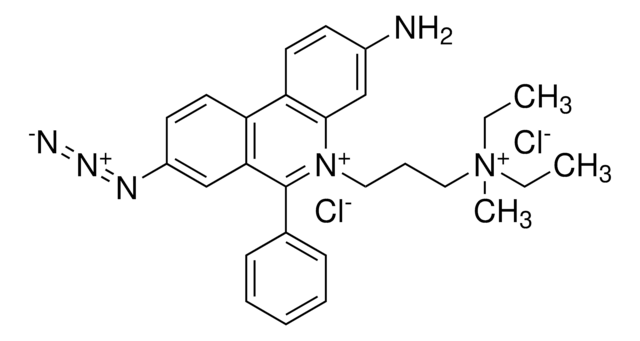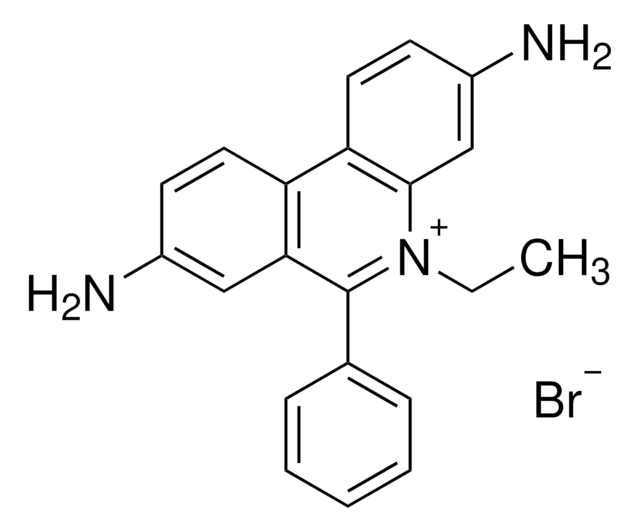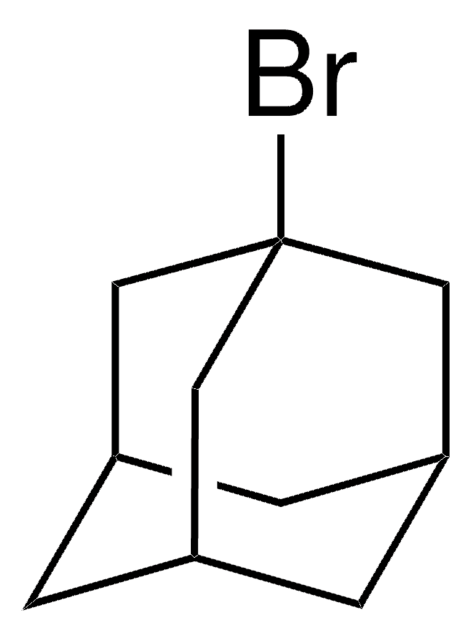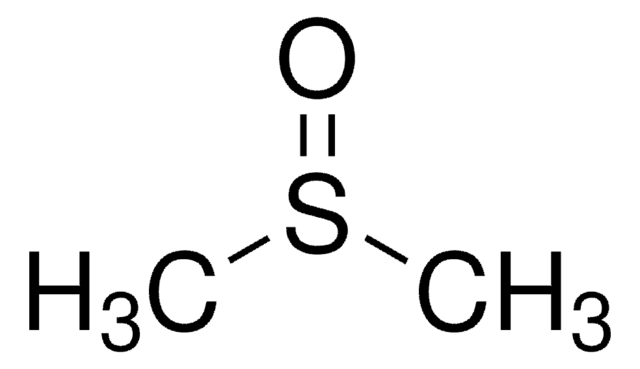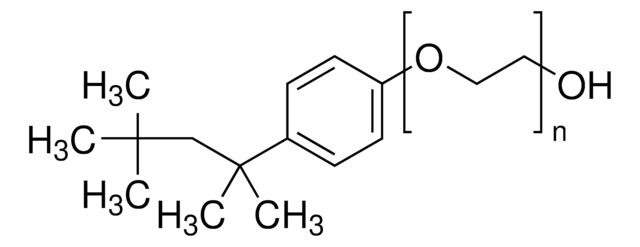E2028
Ethidium bromide monoazide
≥95% (HPLC), solid
Synonym(s):
3-Amino-8-azido-5-ethyl-6-phenylphenanthridinium bromide, Ethidium monoazide bromide
About This Item
Recommended Products
Quality Level
assay
≥95% (HPLC)
form
solid
color
orange
solubility
DMF: soluble
ethanol: soluble
ε (extinction coefficient)
≥5200 at 459-465 nm
application(s)
diagnostic assay manufacturing
hematology
histology
storage temp.
−20°C
SMILES string
[Br-].CC[n+]1c(-c2ccccc2)c3cc(ccc3c4ccc(N)cc14)N=[N+]=[N-]
InChI
1S/C21H17N5.BrH/c1-2-26-20-12-15(22)8-10-18(20)17-11-9-16(24-25-23)13-19(17)21(26)14-6-4-3-5-7-14;/h3-13,22H,2H2,1H3;1H
InChI key
GHUXAYLZEGLXDA-UHFFFAOYSA-N
Related Categories
Biochem/physiol Actions
Storage Class
11 - Combustible Solids
wgk_germany
WGK 3
flash_point_f
Not applicable
flash_point_c
Not applicable
ppe
Eyeshields, Gloves, type N95 (US)
Choose from one of the most recent versions:
Certificates of Analysis (COA)
Sorry, we don't have COAs for this product available online at this time.
If you need assistance, please contact Customer Support.
Already Own This Product?
Find documentation for the products that you have recently purchased in the Document Library.
Customers Also Viewed
Our team of scientists has experience in all areas of research including Life Science, Material Science, Chemical Synthesis, Chromatography, Analytical and many others.
Contact Technical Service